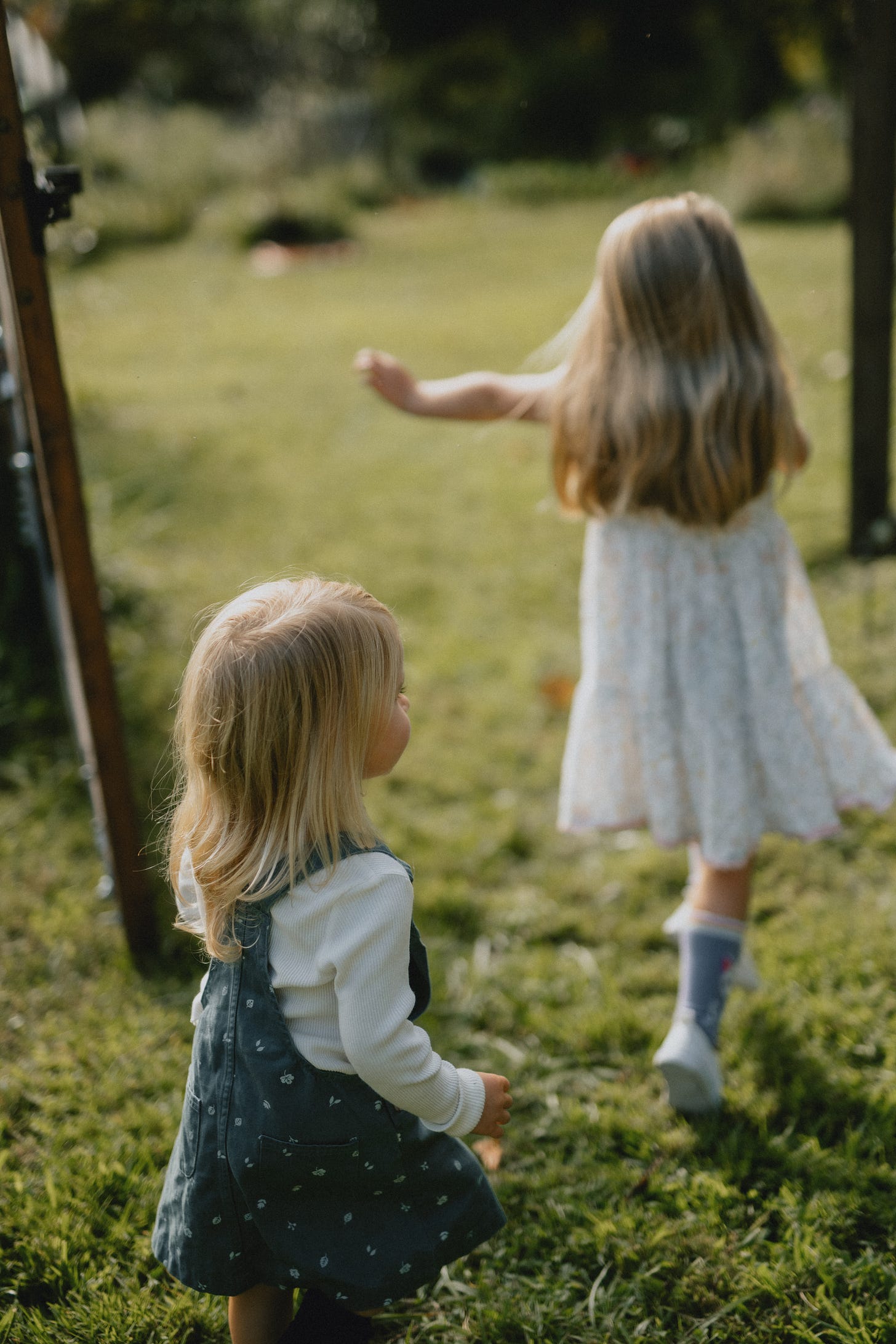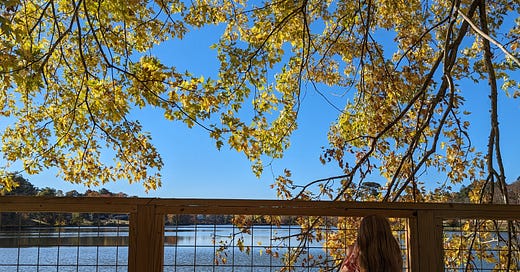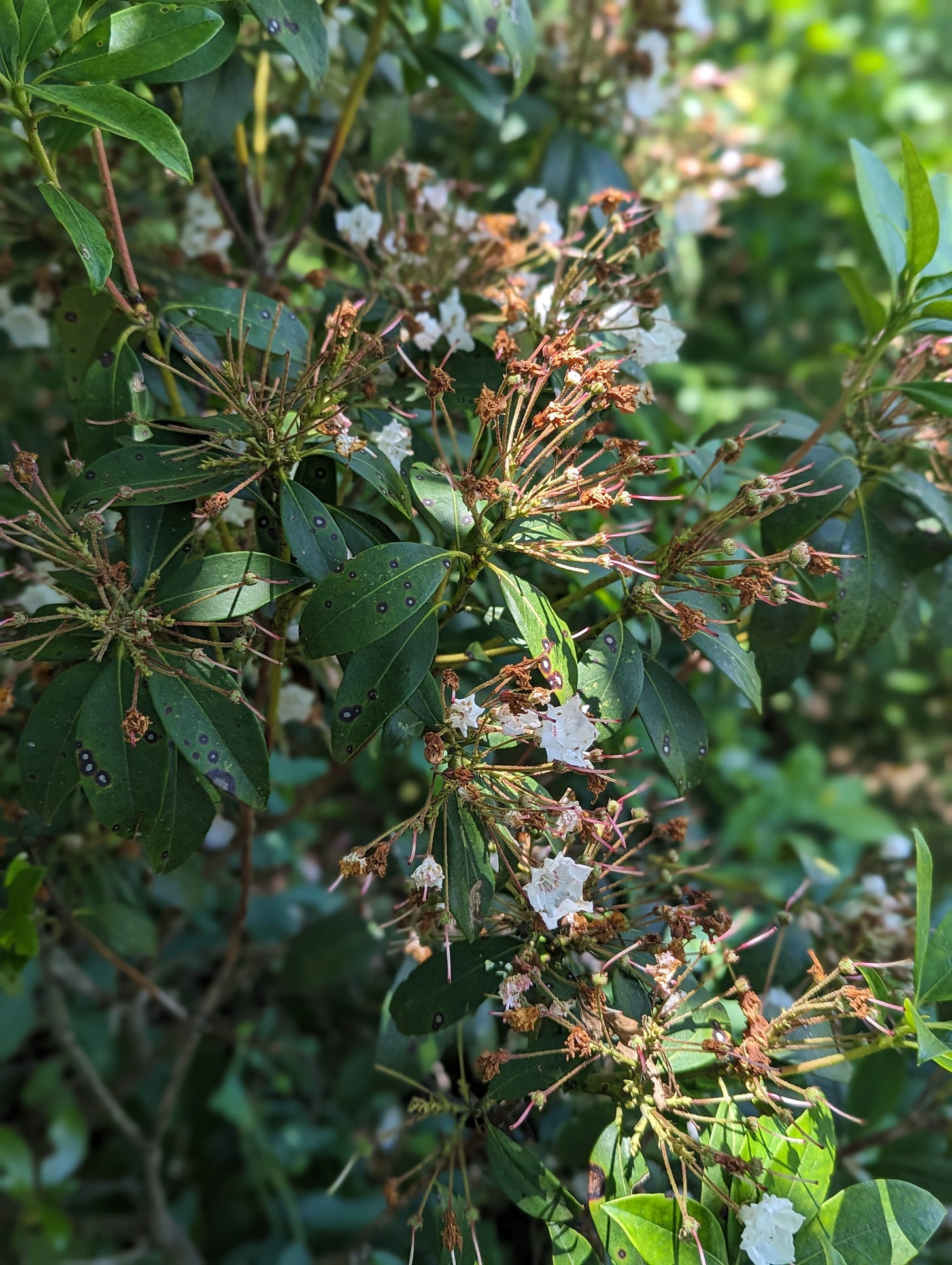Hello there, TransFriend community. I know many of us have a lot of things on our minds right now, and the world isn’t slowing down for us to process any of it. I’m no exception. I hardly know where to begin. But there’s a familiar theme happening in the world of news and media at the moment—when one tragedy strikes a family or region or marginalized group, the next tragedy that comes within a few days or weeks suddenly overshadows those of us left behind in our devastation and grief.
is joining us today to share her love for her beautiful home in Asheville, North Carolina, a location absolutely devastated by hurricane Helene. Asheville is a progressive, welcoming community focused on small-scale farming (my heart goes pitter-patter already!), a deep love of art, and some of the most beautiful scenery in the Blue Ridge Mountains. I’m enamored with Katrina’s affinity for Appalachia, and I hope her words impart some sense of home for you, as well, no matter where you may be in the world.This post was originally published on
on October 10th, and is being shared here with us today in its full format.Please, don't forget us.
And why the Blue Ridge mountains matter so much to me.
By
When my four-year-old daughter woke up yesterday morning, she told me that she missed her best friend from school. She asked if they could have a playdate, or at the very least, a phone call. The unexpected request forced me to pause and consider the fact that my first-born was struggling with our new reality, our displacement, just as much as I was.
It’s been thirteen days since Helene ravaged our mountains, and, as the world turns its gaze to Florida and Milton’s destruction, I sit and worry that our mountains are being forgotten by the second.
This past Monday, I pitched a story about how our North Asheville community had come together, and the editor swiftly and coldly responded: “Only passing on this because (sadly) people have moved on to the next hurricane hitting Florida.” And though I understand (to some degree) the ebb and flow of the news cycle, it doesn’t make our situation any less frustrating. “WE ARE STILL NEWS!” is the email reply that I wanted to send. Our people are still displaced, stranded, missing, injured, and/or dead.
We are still news.
As my family has moved from one home to the next for the past nine days, I’ve been thinking a lot about when exactly it was that I started to write my love story with our wise, old mountains. I think it must have been in the fall of 2006 when I received my first lesson in Appalachian Culture.
I was a sophomore English/Spanish double-major at Appalachian State University in Boone, North Carolina. One of my friends invited me and my now-husband to a contra dance at the Old Cove Creek School Gymnasium in Sugar Grove, North Carolina.
Upon our prompt arrival, we were ushered in by regulars and found two available spots on the dance floor line for the pre-dance workshop. The caller greeted and welcomed us, a large mix of ages, socioeconomic statuses, and/or rhythmic abilities.
I remember feeling nervous-excited. Nervous because I feared I’d forget the steps and would look like a fool; excited because I had never experienced such a communal dance tradition like this before. It felt special—like a secret that had been told to a select group of people behind closed doors for centuries.
Once the lesson was over, the caller instructed us terpsichoreans to take our places and then at the drop of a (trucker) hat, the band was off, and so were we. To the happy tune of the fiddle, mandolin, acoustic guitar, and banjo, we stomped and twirled and spun and clapped and smiled and laughed and glistened and soared across the freshly-waxed wooden floors. And just as briskly as we had begun, the dance was over. I only knew this by my partner's action of dipping me and then shooting me up to standing. My feet thumped the floor and gravity grounded me, signaling the conclusion of the thrilling ride.
Right then and there, I knew that this inaugural lesson wouldn’t be my last in Appalachian Culture.
Through the guidance of professors and mentors, I learned to care for and respect our natural surroundings and our small town by cleaning up its creeks and trails and shopping “local.” It was in Boone where I first started going to farmers markets and putting my hard-earned dollars into the pockets of small business owners.
Consequently, I became hell-bent on unearthing more of the surrounding mountains’ secrets, the ones hiding in hollers, coves, rivers, and forests, and the more I uncovered, the more at-home I began to feel. It became an addictive game—an exciting scavenger hunt like the one my daughters just played at the downtown Cary library yesterday—where every clue was a treasure in and of itself, leading to the greatest treasure of all: home. And by “home,” I’m referring to the metaphorical “home,” a place of peace, of joy, of safety, of love, of curiosity, of wonder, and of acceptance.
For four glorious years, I lived a fairly carefree and curious life, one with a vocabulary absent of the words “hustle” or “grind.” I jumped off boulders into swimming holes. I canoed, kayaked, and tubed down ice-cold waterways. I hiked to waterfalls, summits, and historical landmarks. I sat in awe of panoramic views of stunning blue ridge sunsets and sunrises. I camped under a blanket of stars in open fields and dense canopies. I skied down snow-powdered mountains in winter. I swam in refreshing waters in summer. I leaned in and immersed myself in my natural surroundings and observed its beauty, magnificence, grace, and power.
I was so fortunate. I was so lucky.
By graduation, it became as clear as the waters that flowed through its craggy land: I was home. It broke my heart to leave, to set out on a new path and start a career. I exited college with boundless gratitude for the experience and immense grief. I knew that I had been a lucky one and that I would treasure those golden years for the rest of my life.
With this new education, my husband and I continued to explore the great outdoors in Austin and outside of New York City, two cities our careers pulled us to and pushed us out when our time was up.
While we were away from North Carolina, trying to find our way in the world, we followed an American folk rock band from college, River Whyless, and made it a point to show up to their shows in whichever city we were living in to support them and also as a convenient and affordable way to transport back to our mountains. They were the stereophonic version of “home.”
I remember standing in the audience with folks like us, who were patiently waiting for the sacred experience to begin, and folks unlike us, who were completely clueless to the spiritual pilgrimage they were about to embark. I remember hearing the slice of the violin in a large hushed room, and, with its sharp and sure sound, it cut the strings from the puppeteer that controlled us: Time. All the time had passed, and all the time had remained. I remember tears streaming down my face and my heart aching for home. I remember thinking: at some point, sooner rather than later, we’d submit to our mountains’ calling.
After giving birth to my first child in April of 2020 in NYC, we answered their call and by the following March, we had relocated to Asheville, North Carolina. My husband and I wanted our daughter to receive the same education that we had. We wanted her to experience the magic, the solace, the wisdom, and the love that these ancient hills hold. And though it took some time to lay down roots, we did, eventually. We found home again and, now, three years later, with two daughters in tow.

This past year, in particular, our children have matured and are more independent individuals, allowing us to prioritize getting outside and exploring Western North Carolina. Joyfully, our children serve as our guideposts in planning activities and destinations.
Here are some of our adventure highlights:
We attended the Mermaid Parade in Marshall.
We visited the home of one of Olivia’s new school friends in Burnsville.
We drove out to Mount Mitchell, the highest vantage point east of the Mississippi River.
We camped in Montreat and in Roan Mountain.
We attended the Sourwood Festival in Black Mountain.
Our daughters stayed overnight in their grandparent’s RV at the KOA in Swannanoa.
We listened to live music and played in a creek in Alexander.
We hiked to waterfalls in Dupont State Forest (out in Hendersonville).
We got our family pictures taken at Pucker-Up Berry Farm in Brevard.
We rode horses and bought local meat during the truck sale at Hickory Nut Gap Farm in Fairview.
We stayed with old college friends in Boone, and our kids played at the playground in downtown Blowing Rock.
I do not tell you this to brag or beg for praise. I tell you this because when we made the choice to make Asheville our home, we made the choice to make Western North Carolina our home, too. These small mountain communities mentioned above are a vibrant part of our lives and are gateways to the secrets, the wisdom, the worthy education, of these mountains. They are where we, as a collective group of denizens, go to renew our minds, bodies, and souls. They are where we, parents who are just trying our best, go to raise our children. They're why we live here.
They are also why we grieve today.
I sit here with the same feelings that I sat with fifteen years ago: gratitude and grief. We were so fortunate. We were so lucky. My family and our home are okay, but our people and our mountains are not.
Our hills are hemorrhaging; they are in critical condition. Our communities have been mutilated and require our continued help in the form of cash flow in order to support the individuals and families who have lost everything: their businesses, their homes, their livelihood. Yes, we are taking care of our own on the ground, but we still need outside support. Our local communities’ economies will suffer immensely due to the lack of tourism during the most popular times of year to visit WNC: fall.
So in lieu of your canceled travel plans, please consider donating to the following organizations who could still use your dollars in their pockets:
United Way of Asheville and Buncombe County
As our friends River Whyless so sweetly sing: “We all deserve the light.”
Thank you,
Katrina
Many thanks to
for bringing her compassion here to represent her community in a time of great need. You can subscribe to Katrina’s publication below (I genuinely hope you will), and you can also give her an encouraging comment here.Your trans friend,
Robin











Thank you, Robin, for featuring this piece that is so special and important to me right now. We are heading back to our sweet home in the mountains today, and I'm already an emotional mess. 😭 I also want to thank your readers--this wonderful and accepting community--for taking the time to read and re-stack this post. I am truly humbled by your kindness. I have found that through all of this, hope and love remain. Our words matter; they are what bind us. And, I'll continue to tell my story as well as the stories of others for as long as I am able. 💗
We Are still hurting...I hear you...blessings,Di